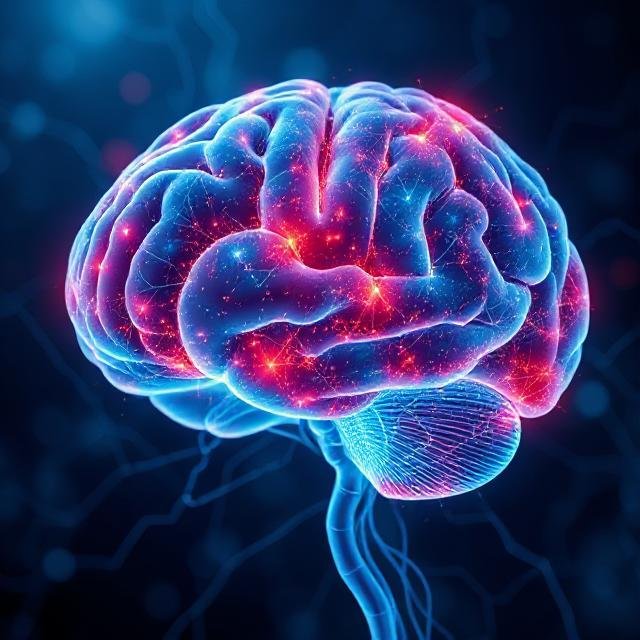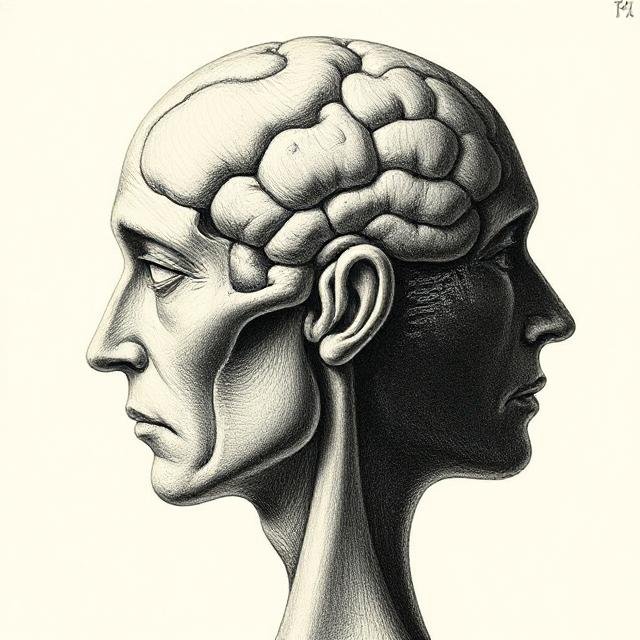Key Brain Regions Involved in Anxiety
Amygdala
The amygdala plays a central role in processing emotions, particularly fear. It evaluates sensory information for potential threats and triggers appropriate responses. In individuals with anxiety disorders, the amygdala may become hyperactive, leading to heightened emotional responses and difficulty distinguishing between real and perceived threats.
Prefrontal Cortex
The prefrontal cortex (PFC) is responsible for higher-order functions such as decision-making, impulse control, and rational thought. In anxiety, the PFC’s regulatory control over emotional responses may be diminished, allowing the amygdala’s influence to predominate, which can impair judgment and increase susceptibility to stress.
Hippocampus
The hippocampus is involved in memory formation and stress regulation. Chronic anxiety can lead to hippocampal atrophy, impairing memory and increasing vulnerability to stress-related disorders.
Anterior Cingulate Cortex
The anterior cingulate cortex (ACC) plays a role in emotional regulation and error detection. Research indicates that individuals with anxiety disorders may exhibit altered ACC activity, which can affect their ability to process and respond to emotional stimuli appropriately.
Neurotransmitters and Hormones in Anxiety
Neurotransmitters such as gamma-aminobutyric acid (GABA), serotonin, and norepinephrine play pivotal roles in regulating mood and anxiety levels. Imbalances in these chemicals can contribute to the development and persistence of anxiety disorders. For instance, reduced GABA activity can lead to increased neuronal excitability, while alterations in serotonin and norepinephrine systems are associated with mood and anxiety regulation.
The Stress Response: Fight, Flight, or Freeze
When the brain perceives a threat, the hypothalamus activates the sympathetic nervous system, triggering the “fight or flight” response. This leads to the release of stress hormones like cortisol and adrenaline, preparing the body for immediate action. While this response is adaptive in acute situations, chronic activation due to persistent anxiety can have detrimental effects on health.
Chronic Anxiety and Brain Changes
Prolonged anxiety can lead to structural and functional changes in the brain. Studies have shown alterations in brain circuits involved in emotion regulation, which may contribute to the persistence and exacerbation of anxiety symptoms.
Therapeutic Interventions and Brain Activity
Cognitive Behavioral Therapy (CBT) has been shown to alter brain activity in individuals with anxiety disorders. For example, a study found that CBT led to changes in brain regions associated with emotion regulation and cognitive control, suggesting that therapeutic interventions can have a direct impact on brain function.
Conclusion
Anxiety is a multifaceted condition with profound effects on the brain. Understanding the neural mechanisms involved is essential for developing effective treatments and interventions. Ongoing research continues to shed light on the complexities of anxiety, offering hope for more targeted and personalized therapeutic approaches.













